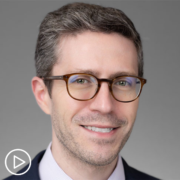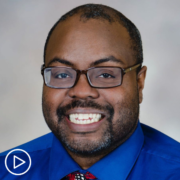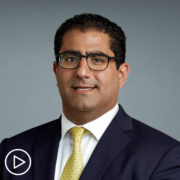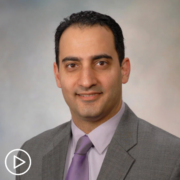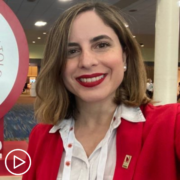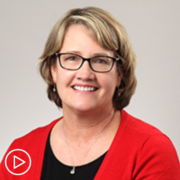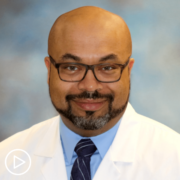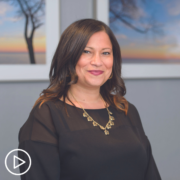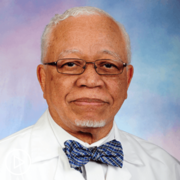Dr. Krina Patel: Why Is It Important for You to Empower Patients? from Patient Empowerment Network on Vimeo.
Why is it important to empower patients in their care? Expert Dr. Krina Patel from The University of Texas MD Anderson Cancer Center discusses her approaches and how she engages with her patients through treatment, care, and survivorship.
See More from Empowering Providers to Empower Patients (EPEP)
Related Resources:
Transcript:
Dr. Krina Patel:
So I think in myeloma, where our patients for the most part are not cured, they’re incurable and for the most part are on therapy lifelong. I think it’s really important that they have a community to go to, including their caregivers. There’s a lot of caregiver burnout that happens, patients, when they’re doing well or well, but when they relapse, it can be pretty dramatic and kind of take away everything again. And every time a patient’s relapsing, sometimes it feels hopeless.
And I think with all the therapies we have out there, this embarrassment of riches as we myeloma doctors like to say, we have to be able to get them through to have access to these drugs at the right time, make sure we decrease toxicity. But it’s a lot of information.
And I think for our patients, no matter how much time we spend with them, it’s just, it’s overwhelming. And I think it is for a lot of my colleagues who don’t just do myeloma all the time. I mean, it’s overwhelming for me half the time when I’m trying to see my patients and figuring out which is the next therapy. And so I really, at the first visit, talk to my patients about patient advocacy groups that are out there. And I even give them websites to go to.
At MD Anderson we’re trying to make videos for our patients so that while they’re waiting in the waiting rooms, they’ll have access to those, specifically, for CAR-T therapy and bispecifics. I think those are such great novel therapies, but they’re also high maintenance as I like to call them that there’s a lot of supportive care that’s needed for infection prophylaxis to make sure they don’t get secondary cancers, right?
All these complications that can happen, neurotoxicity, etcetera. And thankfully, for the most part, our patients do really well and they can get through it. But for those patients who end up with that, it’s really important they have this information, so they know when to contact us. And I think for my colleagues as well, we’re trying really hard to make sure we have better communication, for my patients that are in the community coming in for CAR T or for bispecific therapy, then going back to their doctors, their community doctors for the rest of their care.
So we have letters, that we come up with that we give to the patient as well as send to their doctor. We have phone numbers they can call that even if they’re back home, and they need to get ahold of someone that, they have a lifeline to say, I don’t know what to do. This is happening. And I think, it’s really important again for the patients and their caregivers to really understand, this is a lifelong journey, right?
This is not something that you’re just going to get a few cycles of treatment and then you go to survivorship clinic. And then hopefully we never have to treat again. And that this myeloma as of right now is still a continuous therapy and it could be, long periods of time between therapies. Or you might go on maintenance, for a long period of time before you need your next line of therapy, but this is a lifelong therapy that we’re going to have to do with, with everybody involved.
And I think, again, I can’t see every patient out there and most myeloma specialists can’t, but we’re happy to be a part of the team. And so really, when we can have access to things that the community might not, or be able to help in terms of, what combination is the best for this patient, and what dose reductions should we do for this specific patient?
Those are the things we would love to help our community doctors with to make sure outcomes for all our patients, those who are near us, but those who are also physically not close to us that we can still be able to help to make sure that they have the best efficacy, but also the best quality of life with this disease.


